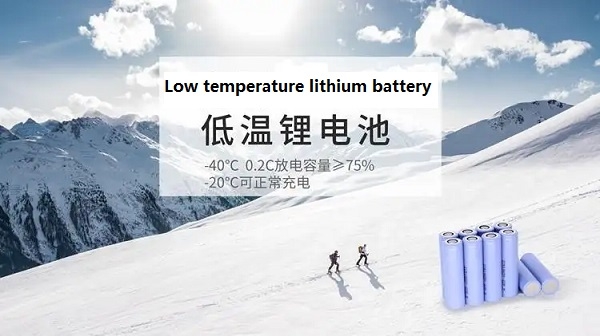Low temperature lithium battery, a type of lithium metal battery, has an operating temperature of -20°C to 60°C. It can work normally at low temperature, but the charging and discharging efficiency is low. It has the advantages of small size, high specific energy, good cycle performance and low cost.

Low-temperature lithium batteries are made of special materials and processes, suitable for use in sub-zero cold environments, and have excellent discharge capacity and performance. Generally, they are required to work normally in an environment of -40 degrees, and the discharge capacity is maintained at 80 % or more, the minimum working temperature can reach -50℃.
The low-temperature lithium battery uses VGCF and activated carbon with a specific surface area of (2000±500)㎡/g as additives and its matching positive and negative electrodes, and injects special electrolytes with special additives to ensure the low-temperature discharge function of lithium batteries. The volume change rate is less than or equal to 0.5% when the high temperature is 70°C for 24h, and it has the safety and storage function of conventional lithium batteries.
Types of low temperature lithium batteries
Low-temperature lithium batteries are divided into three series according to their use environments: civilian low-temperature batteries, special low-temperature batteries, and extreme environment low-temperature batteries:
1. Civil low temperature lithium battery: -20℃ battery 0.2C discharge accounts for more than 90% of the rated capacity; -30℃ battery 0.2C discharge accounts for more than 85% of the rated capacity;
2. Special low temperature lithium battery -40℃ battery 0.2 discharge accounts for more than 80% of the rated capacity;
3. When the low temperature lithium battery in extreme environment is -50°C, the battery 0.2 discharge accounts for more than 50% of the rated capacity;
Application of low temperature lithium battery
Low-temperature lithium batteries are widely used due to their advantages of light weight, high specific energy and long life. They are suitable for use in sub-zero cold environments. Cold zone emergency, disaster relief power supply, cold clothing, cold shoes power lights.